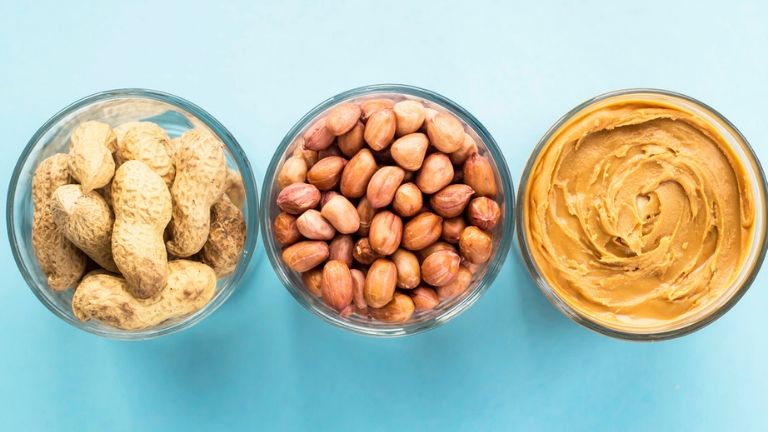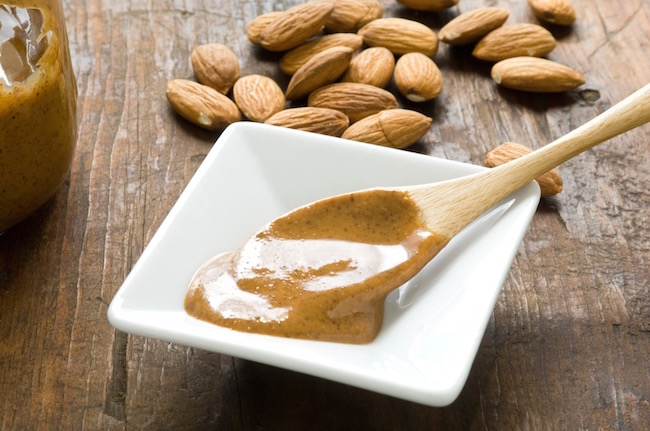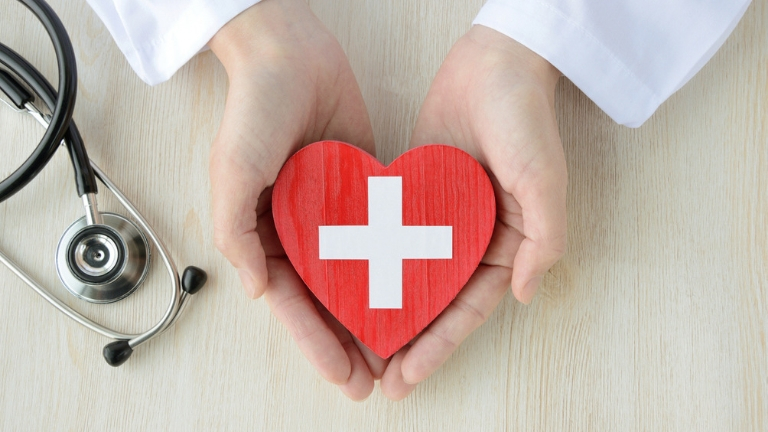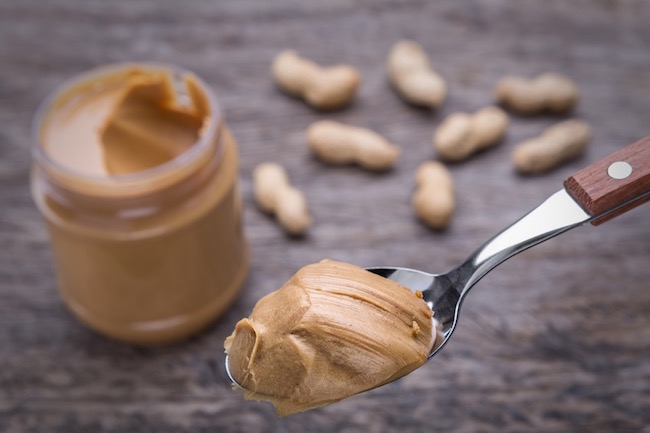Is peanut butter your go to snack? Well good news, this moreish treat has a few health benefits to its name, including weight loss. Healthista spoke to nutritionist Rick Hay
Peanut butter – nutty, gooey, creamy, scrummy, wholesome, unputdownable – did I miss out any other adjectives?
Lockdown #1 was bad enough when it came to spooning peanut butter from the jar, but Lockdown 2.0 has seen a recycling bin full of nut butter jars…
Peanut butter is everyone’s favourite spread – well nearly everyone’s.
Research, conducted by Healthista on 1500 readers in association with Pip & Nut, found that a whopping 70 percent of us rate peanut butter as our favourite ever spread, beating old favourites (such as honey seven percent and Marmite six per cent).
Not only that, but nine out of ten of us eat it straight out of the jar, with two thirds of us admitting to double-dipping our spoons – I am so glad I’m not alone on that one.
Although oh so tasty, what passes people’s lips (in-between the double dipping of our spoons) is the question as to whether peanut butter is actually good for us?
So are there any health benefits of eating peanut butter? We quizzed Healthista Collective Expert and Nutritionist Rick Hay, who reveals that there are in fact six benefits of eating peanut butter. Let’s find out more…
#1 It can help you lose weight
Well if this isn’t the best news ever? In fact, many studies suggest that eating peanuts and other types of nuts can help people lose weight.
The main reason for this is because peanuts improve satiety (that means they keep you feeling fuller for longer), this is thanks to their high protein, fat and fibre content.
‘Nuts and nut butter are both great as a healthy cravings buster, making them perfect for those who are looking to maintain a healthy weight. That’s why I recommend nut butter to my students when giving my lectures at The College of Naturopathic Medicine on Sustainable Weight Management,’ explains Hay.
A study led by researchers at Harvard TH Chan School of Public Health, looked into the nut consumption of 25,394 men and over 100,000 women, all of whom filled out a food frequency questionnaire once every four years.
those who ate nuts two or more times a week gained less weight over an eight year period
Findings showed that by replacing less nutritional foods with a 28 gram serving of nuts, people were at a lower risk of gaining weight over the four year period. Interestingly, they also found that those who replaced one serving of red meat, processed meat, chips, desserts or crisps with a serving of nuts, were far less likely to gain weight.
Another study published in 2018, suggests that eating nuts (including peanuts) can reduce a person’s risk of being overweight or obese. This study compared the dietary and lifestyle data of over 373,000 people from ten European countries over a period of five years.
And yet another study based on data gathered on over 51,000 women, found that those who ate nuts two or more times a week gained less weight over an eight year period compared to women who rarely ate nuts.
Of course this doesn’t give you permission to eat your body weight in nuts and nut butter, as it is still a high calorie food, with 94 calories per tablespoons, and 31 calories in just a teaspoon. But if eaten in moderation they will keep you feeling fuller for longer and therefore less likely to reach for other, unhealthier snacks.
#2 It’s the perfect post-workout snack
Historically peanut butter in particular has been known as an indulgent, high-calorie treat, that can be bad for you if you have no willpower with a spoon…
But in recent years, peanut butter has been been recognised as a high protein snack that keeps you feeling full and is great to have post workout. In fact, in every 100 grams of peanut butter there is a whopping 27 grams of protein – wowzers.
including up to 20 grams of protein after your workout, you will maximize muscle repair
And as we know, protein is essential for building and repairing muscles. According to Iowa State University, by including up to 20 grams of protein after your workout, you will maximize muscle repair and recovery.
Plus, nuts and nut butter are products that can easily be incorporated into your everyday diet. Smoothies, breakfast, sauces, cakes – you name it, you can probably add nuts and peanut butter to it.
‘Nut butters make the perfect protein snack,’ adds Hay, ‘they are high in protein and a great source of energy’.
It’s no wonder you see body builders covering bananas in peanut butter.
#3 It is great for you heart
It’s also suggested that nuts can lower the risk of various diseases such as obesity, heart disease and type 2 diabetes.
Research shows that both cashew nuts and peanuts in particular help aid heart health and can lower your risk for cardiovascular disease.
Peanut butter contains many nutrients that can improve heart health, including monounsaturated fatty acids (MUFAs) aka the ‘good fats’ like the such that are found in olive oil and avocados.
What’s more, some brands of peanut butter, use peanuts that are 30 percent higher in MUFAs than standard peanut butters, these are known as hi-oleic nuts.
‘These ‘hi’ and ‘good’ monosaturated fats are great in helping to support normal cholesterol levels,’ says nutritionist Rick Hay, ‘they are good fats that your body will thank you for’.
Peanut butter contains many nutrients that can improve heart health, including monounsaturated fatty acids (MUFAs) aka the ‘good fats’
Hi-oleic nuts contain a higher amount of oleic acid compared to standard peanuts. Oleic acid is a monounsaturated fatty acid, known as a good fat that reduces the amount of bad cholesterol, whilst boosting the levels of good cholesterol.
Hi-oleic peanuts are only found in a handful of places around the world, including Argentina and Australia. They are grown in exactly the same way as the standard peanut, containing all the natural protein, vitamins, minerals and fibre, but these nuts have the added bonus of higher-than-usual levels of monosaturated fats.
In fact, it’s the same sort of good fat that makes the Mediterranean diet so incredibly healthy. ‘The good essential fatty acids will also help with heart, brain and skin health,’ adds Hay. Indeed, peanut butter has similar fat levels to olive oil, which is a well-known heart-healthy food.
Studies have found that a high intake of nuts may indeed have links to a reduced risk of mortality from heart disease or other causes. Research also suggests that including 46 grams per day of peanuts or peanut butter into an average diet plan for six months could benefit the heart and control weight for people with diabetes.
it’s better to look for a peanut butter that doesn’t contain palm oil
However, again as peanut butter is high in calories, it is recommended that peanut butter us eaten in moderation to avoid gaining excess weight.
Also, it’s better to look for a peanut butter that doesn’t contain palm oil. Not just for environmental reasons but also for heart health as palm oil is high in saturated fat.
Eating foods that contain high saturated fats can raise the level of cholesterol in your blood, and high levels of cholesterol in your blood may increase your risk of heart disease and stroke.
#4 It helps to manage blood sugar levels
Although high in healthy fats and protein, peanut butter is low in carbohydrates, and if you choose one with no added sugar, it means eating it will have no significant impact (only causing a very small rise) on blood glucose levels. This makes it an excellent snack option for those with diabetes.
Indeed, an observational study found that women who ate peanut butter five or more times a week, were at a 21 percent reduced risk of type 2 diabetes.
Additionally, a 2013 study discovered that eating peanut butter or peanuts for breakfast could in fact help women who are obese and who are at a higher risk of type 2 diabetes, to manage their blood glucose levels.
The women who added nuts to their breakfast had lower blood sugar levels and reported less feeling less hungry, compared to the women who ate a breakfast that contained the same amount of carbohydrates but who added no nuts.
Peanut butter is a also a great source of magnesium
Peanut butter is a also a great source of magnesium, an essential nutrient for people with diabetes. Continuous periods of high blood sugar may reduce magnesium levels in the body, and low magnesium levels have been linked to type 2 diabetes.
Look out though for those nut butters out there that do contain added sugars. From added sugar to stabilizers, a few too many nut butters contain ingredients that really aren’t healthy, even if they claim to be.
For example a product may say low or no sugar, but when looking at the ingredients list you will see xylitol, an artifical sweetener and common ingredient in many products, from sugar-free chewing gum to toothpaste.
‘Added sugar such as Xylitol, can actually be bad news for your health, especially for your gut if consumed in excess. Too much xylitol could cause stomach discomfort and diarrhea,’ explains Hay.
Nowadays we all know that the fewer ingredients a product has, the more natural and better for us it will be. ‘Natural is always best nutritionally,’ says Hay. ‘Natural wholefood products are always healthier from a nutritional perspective and I am always recommending them’.
fewer ingredients means it’s a more healthy nut butter, it’s literally just nuts
You know that oil you see on top when you buy a nut butter? Well this actually means that the product is completely natural, as this means nothing artificial has been added, it’s all just nuts and sea salt.
‘Nuts are naturally quite sweet,’ says Hay. ‘So added sugar isn’t necessary, be sure to check the ingredients, the less ingredients there are the more natural the product’.
So fewer ingredients means it’s a more healthy nut butter, it’s literally just nuts – making it perfectly acceptable to eat the entire tub – guilt free peanut butter eating, it’s a dream come true.
#5 May help to prevent breast cancer
What’s more, eating peanut butter, especially from a younger age has been said to reduce the risk of benign breast disease (BBD), which increases your risk of breast cancer.
A study in the journal Breast Cancer Research and Treatment, examined the data of over 9,000 schoolgirls in America. The study found that eating peanut butter and nuts at any age may result in a lower risk of developing BDD by the age of 30.
Other types of pulses, such as beans and soy, along with vegetable fats and other nuts, also were shown offer protection from BBD, and therefore breast cancer.
Furthermore, the study suggested that even those who had a family history of breast cancer, were at a significantly lower risk of contracting the disease if they ate peanut butter from a younger age.
#6 Peanut butter is a vitamin powerhouse
Almonds, walnuts, macadamia nuts, peanuts – nuts and nut butter alike are not only high in healthy fats, fibre and are a great plant-based source of protein. They’re also high in Vitamin E and magnesium – minerals that most people don’t get enough of.
A 100 gram portion of peanut butter provides:
- Vitamin E: 45% of the RDA (Recommended Dietary Allowance)
- Vitamin B3 (Niacin): 67% of the RDA. Peanut butter contains 4.21 mg of niacin per 15g serving, which makes a useful contribution towards a person’s recommended intake. ‘Niacin benefits digestion and nerve function and helps the body to produce energy,’ explains Hay.
- Vitamin B6: 27% of the RDA. Vitamin B6 plays a role in over 100 enzyme reactions in the body and has an important function in heart and immune system health.
- Magnesium: 39% of the RDA. Magnesium is essential for health, playing a role in over 300 chemical processes in the body.
What are you waiting for? Grab a jar of nut butter and a spoon and well you know what to do.
Relevant Healthista Content:
9 nut butter obsessed Instagram stars share their snack hacks
The ONE anti-ageing secret this 58 year old science writer swears by (yes, she is 58!)
Obsessed with peanut butter? You’re SO not alone
5 natural fixes for joint pain proven by science
Healthista Content you may also like:
21 healthy snacks under 100 calories
8 best squat proof leggings – tried and tested
Can’t sleep? 7 best products to help you sleep better and wake up gorgeous
Like this article? Sign up to our newsletter to get more articles like this delivered straight to your inbox.


























































